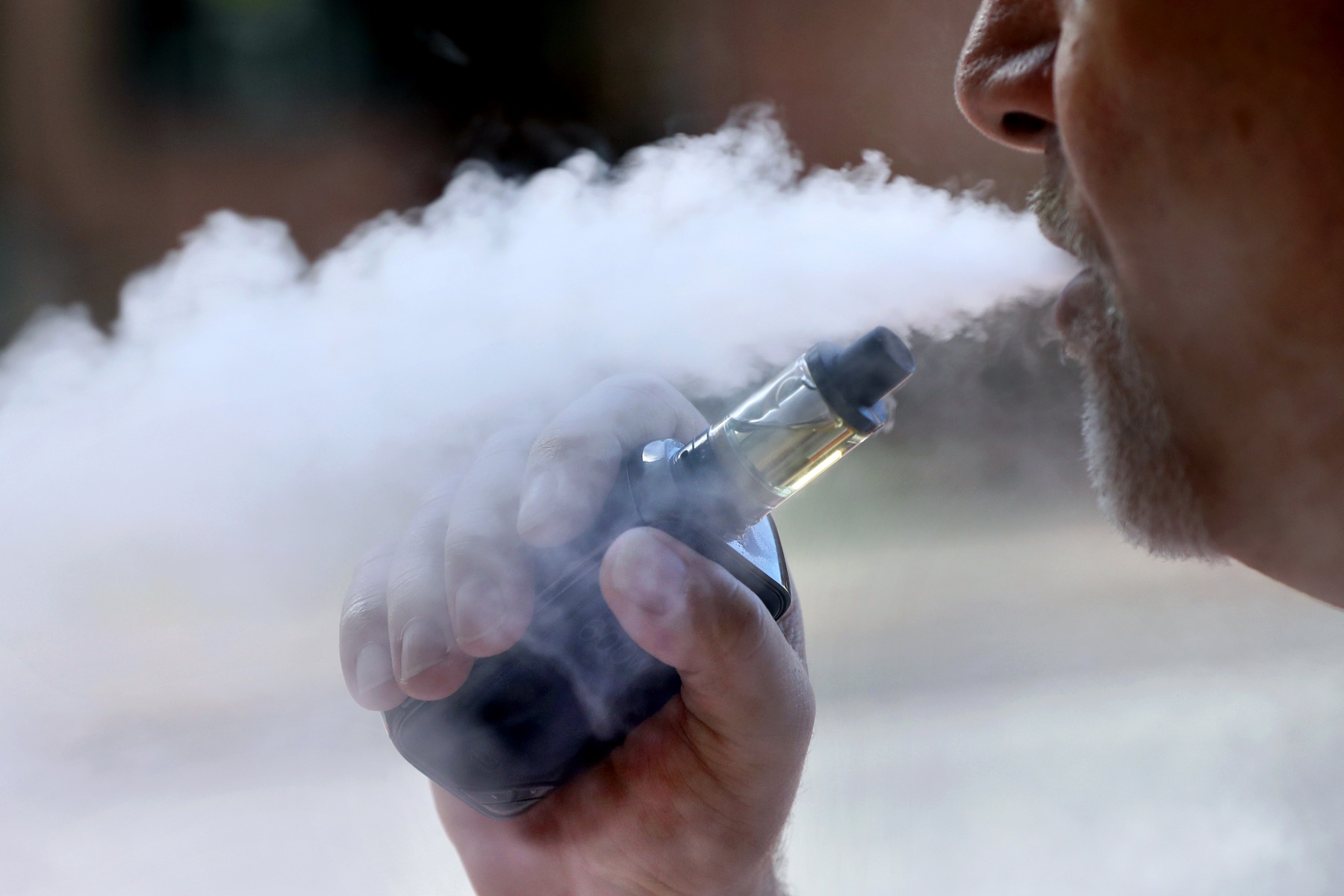Health Officials Continue Search For Answers In Respiratory Illness Outbreak

In recent weeks, there’s been a rash of “severe pulmonary disease” across the country, and public health officials want to know if it’s tied to vaping.
Robert F. Bukaty / Associated Press file
It’s just after sunrise at WellStar Medical Group Pulmonary Medicine in Marietta, and Dr. Hiren Patel is getting ready for another day of seeing patients.
Lately, he’s watching out for one kind in particular.
“We’ll get folks that come into the office with just shortness of breath, chest pain, just kinda random vague issues,” he said. “But then we notice that they have more difficulty breathing when they never had that before.”
Those are some of the symptoms the Centers for Disease Control and Prevention has seen in patients who also report using e-cigarettes.
In recent weeks, there’s been a rash of what the agency calls “severe pulmonary disease” across the country, and public health officials want to know if it’s tied to vaping.
More than 200 cases, including some deaths, have been reported in dozens of states, and Georgia hasn’t been immune.
Patel says doctors at WellStar have come across a handful of possible cases since July. One patient even died.
“We’ve had one case actually pass,” he said. “And we’re trying to figure out whether that person was related to the vape and e-cigarette [use] versus some kind of other anomaly that occurred.”
That’s exactly what doctors and public health officials across the country are trying to figure out: are people getting sick because they’re vaping? If so, what e-cigarette products are they using?
“We’re really dealing with an unknown other than the fact that it’s a vaping-related illness in many cases,” said Dr. Albert Rizzo, chief medical officer of the American Lung Association.
Rizzo says it’s difficult for regulators to keep up with the fast-growing e-cigarette market, and some products aren’t even approved by the U.S. Food and Drug Administration.
He says that makes it hard for scientists to look at the health effects of vaping.
“There needs to be some regulation of what these products are and [they need to be] studied to see what are they going to lead to,” he said.
Meanwhile, federal officials have identified a possible common link among the cases that have been reported: THC, the psychoactive substance in marijuana.
“In many cases, patients have reported use of THC-containing products while speaking to health care professionals,” said Ileana Arias, deputy director for non-infectious diseases for the CDC, on a press call last month.
That’s another complication because the FDA doesn’t regulate THC. But that hasn’t stopped the agency from testing dozens of e-cigarette samples for their contents.
It plans to share what it finds with states, including Georgia, that are investigating the respiratory illness outbreak.





